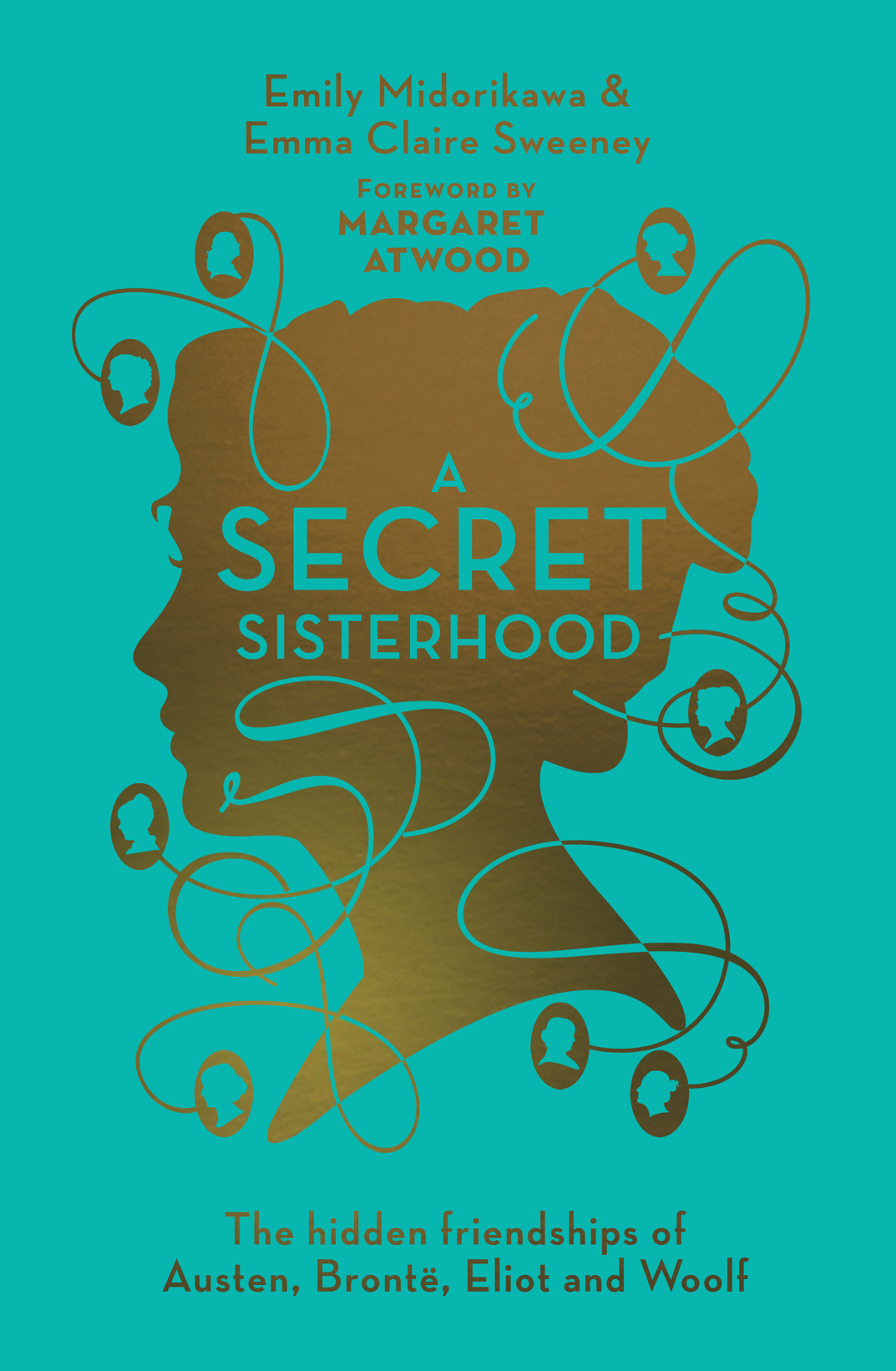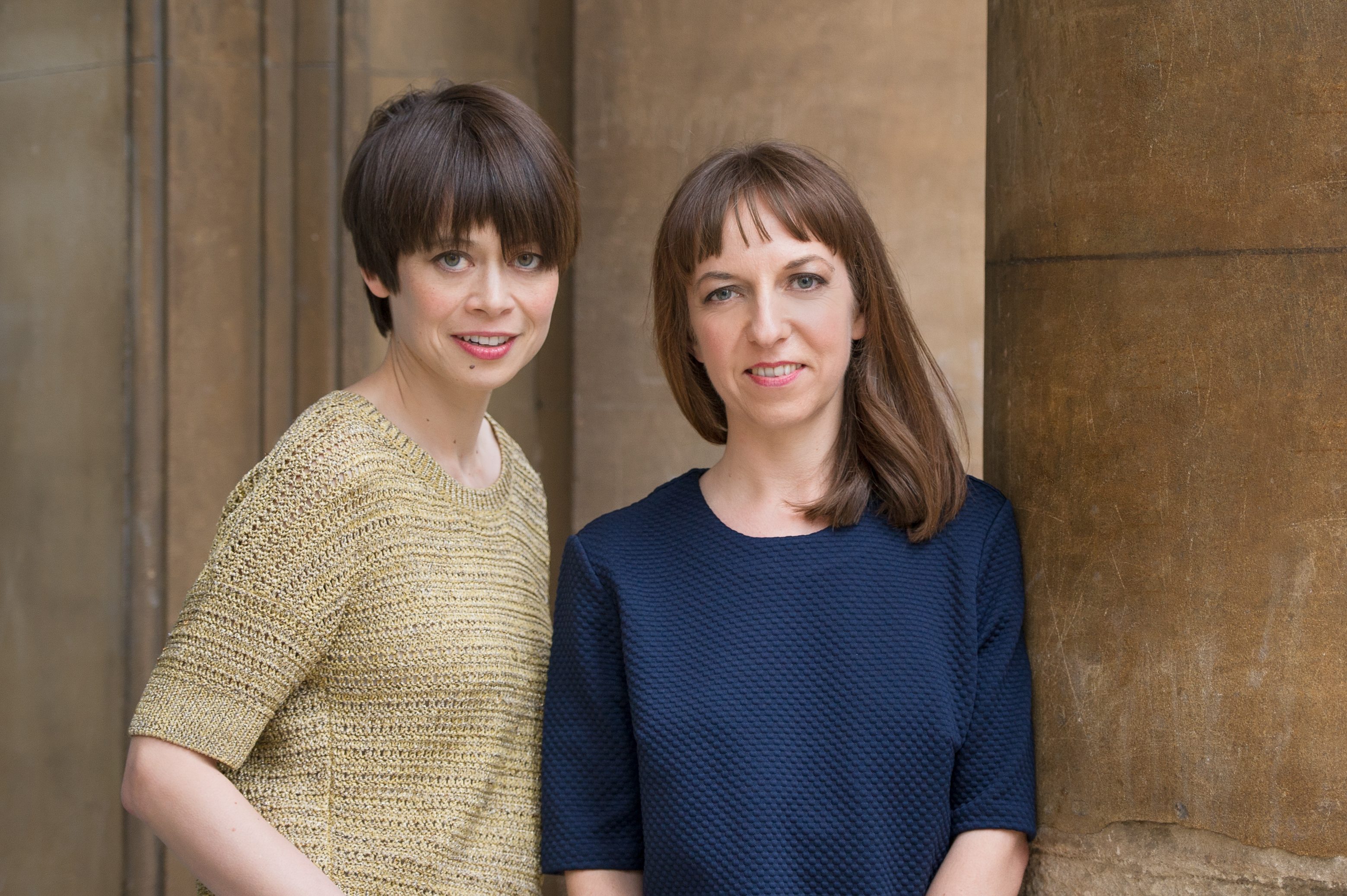
'We think back through our mothers if we are women,' Virginia Woolf mused in her book-length essay A Room of One's Own. Female writers, she counselled, should look to the women who came before them when gleaning tips on their craft.
The same also holds true for wider aspects of the writing life. But Woolf was bereft of role models when it came to navigating the intricacies of friendship with another woman who wrote.
While she knew all about the celebrated collaborations between William Wordsworth and Samuel Taylor Coleridge and the infamous bond between Lord Byron and Percy Bysshe Shelley, she assumed that her female literary forebears lived isolated lives.
Jane Austen was a bookish spinster aunt – so shy she hid her manuscripts even from the relatives with whom she shared her small home. Charlotte Brontë languished in a moorland parsonage, ‘without more experience of life than could enter the house of a respectable clergyman’. And George Eliot, thanks to her frowned-upon decision to ‘live in sin’, endured a lonely existence, tucked away in a corner of north London.
Our own experience as female writers who have relied on each other for support made us question these images of extreme seclusion. We have lost count of the numbers of drafts we read of each other’s novels in progress during our long journeys towards publication. When each of us began to rack up rejection slips from editors, we offered sympathy from a position of true understanding. But we also enjoyed the privilege of sharing individual successes as a pair: signing with agents, winning competitions, and, finally, securing those publishing deals.
We set out to discover if our literary mothers had really been so set apart from the people around them, or whether they too might have relied on another woman’s support. And we came across so many rich stories that we brought them together in a book, which we have called A Secret Sisterhood: The hidden friendships of Austen, Brontë, Eliot and Woolf.
Knowing that Woolf had compared fellow modernist Katherine Mansfield to ‘a civet cat that had taken to street-walking’, we had initially put them down as enemies. But it turns out that they regarded each other as dear, if difficult, friends. Mansfield took overnight trips to Woolf’s country home, and, when Mansfield fell ill, Woolf traipsed across London each week to visit her ailing friend.

The rivalrous edge to their friendship sometimes caused Woolf pain. If she failed to receive a swift reply to one of her letters, for example, she would feel anxious and confused – convinced that Mansfield had spurned her.
Imagine Woolf’s distress when she stumbled upon Mansfield’s negative review of Night and Day within the covers of the Athenaeum magazine. Here, Mansfield had criticised Woolf’s second novel for failing to acknowledge the effects of the Great War. Little could Woolf have known at the time that this review would eventually spur her on to produce some of her best work.
If only Woolf had known that Eliot before her had experienced her own troubled literary friendship. We discovered that she turned for support to the only other woman who could truly understand her experience of literary fame. Harriet Beecher Stowe, author of the internationally bestselling antislavery novel Uncle Tom's Cabin enthusiastically responded to the hand of friendship that Eliot extended across the Atlantic. During the years of their epistolary bond, they would confide in each other about the scandals each of them endured. But the course of this friendship was every bit as complicated as that of Woolf’s relationship with Mansfield. And Woolf could have learned a thing or two from Eliot’s capacity for both candour and compassion during moments of disagreement or neglect.
A little further back still, the alliance Brontë sought beyond the family took her far from her parsonage home. In Yorkshire in 1831 Brontë would forge a close friendship with a fellow boarder at Roe Head School - a young woman who did not immediately take to her fellow pupil. The sharp-tongued radical Mary Taylor told young Brontë that she found her ugly, and, in later years she would make cutting criticism of Jane Eyre. But Brontë could give as good as she got, and, as the years progressed, she turned to the spirited advice of her friend when approaching her more overly political novels.
Austen, the literary mother of all three of these writers, fought to maintain a bond that is more unexpected and even less known than those enjoyed by her descendants. She ignored class lines by befriending an amateur playwright, Anne Sharp, who also happened to be the governess of Austen's niece. Though separated by the might class divide, the pair shared the status of amateur writer and this acted, for the first time, as an important social leveller. That all changed when Austen published her debut novel, fifteen years after she embarked on the first draft.
Woolf could not turn to these authors for guidance on maintaining her relationship with Mansfield because early biographies had whitewashed these fascinating stories of women who valued their friends through the good times and the bad.
But our research has allowed us to learn from these friendships in a way that Woolf could not. The bond between Austen and Sharp shows that friends can indeed overcome any friction caused by differences in worldly success. The example of Taylor, whose hectoring did such a lot to encourage Brontë's ambitions, suggests that the willingness to speak uncomfortable truths is sometimes the hallmark of a real confidante. Eliot's forgiveness of Stowe's neglect is testament to the power of letting go of past grievances. And the friendship of Woolf and Mansfield, those supposed arch foes, demonstrates that professional rivalry can actually fuel a female literary alliance.
Writer friends Emily Midorikawa and Emma Claire Sweeney are the authors of A Secret Sisterhood: The hidden friendships of Austen, Brontë, Eliot and Woolf published by Aurum Press on 1 June 2017. They also co-run SomethingRhymed.com, a website that celebrates female literary friendship. They have written for the likes of the Guardian, the Independent on Sunday and The Times. Emily is a winner of the Lucy Cavendish Fiction Prize, Emma is author of the award-winning novel Owl Song at Dawn, and they both teach at New York University London.
Follow them on Twitter: @emilymidorikawa @emmacsweeney
Comments